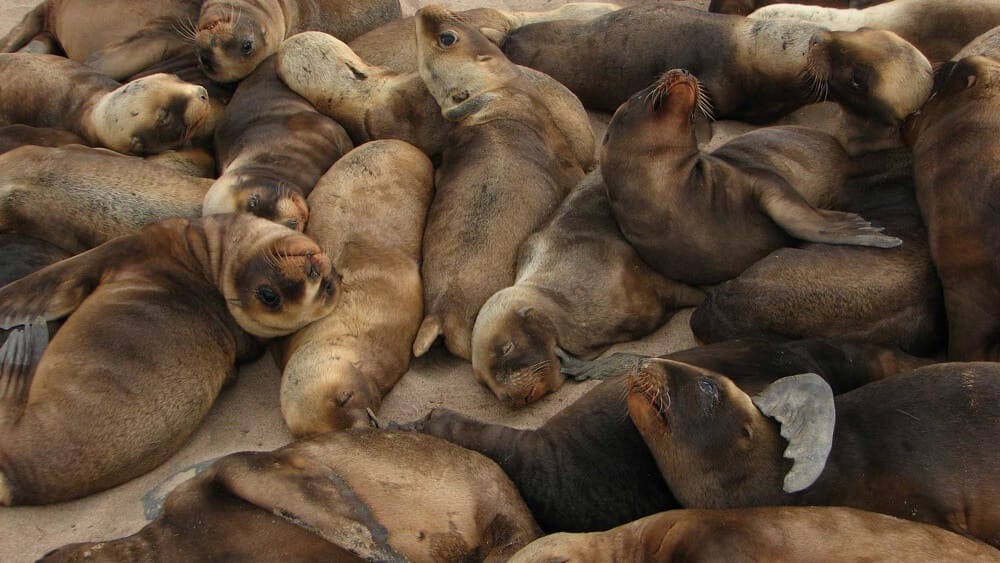For the first time in more than 150 years, a New Zealand sea lion/rāpoka breeding colony has established on mainland New Zealand, at Stewart Island.
The annual pup count in Stewart Island has revealed 55 new-born pups this season, and now that the numbers have been consistent for several years, it can be declared a breeding colony.
DOC Marine Science Advisor Laura Boren says this is an exciting development for the Nationally Critical species.
“A new breeding colony is huge news for New Zealand sea lions. Sea lions have been showing signs of recolonising on the mainland, but it has been slow going. The remote and forested habitat at Port Pegasus, Stewart Island has provided a safe stepping stone for sea lions to increase in numbers,” Laura Boren says.
“This is great for the species as if this colony continues to grow, it provides more resilience to disease and storm events in the overall population. It may also help facilitate recolonisation on the Otago and Catlins coastline or elsewhere on the mainland.”
DOC Rakiura Senior Ranger Biodiversity Kevin Carter says pup counts have occurred annually on Stewart Island for the past eight years.
“The past couple of years has seen a real increase in search efforts – we know more about their behaviours and where they hang out. It’s possible this group reached breeding colony status some time ago, however until we had the numbers for this year we could not say for certain,” Kevin Carter says.
“Either way, the future of the Rakiura population is looking positive.”
The New Zealand sea lion is a taonga species, treasured by tangata whenua.
It is rare, endemic to New Zealand and classified as Nationally Critical – the highest threat classification.
Conservation Minister Eugenie Sage says while the Stewart Island/Rakiura population’s official status as a breeding colony is exciting news, more work needs to be done to protect the species.
“New Zealand sea lions face a range of threats from disease to commercial fishing and deliberate attacks by humans. With the population at just 12,000, their future relies on the actions we take now to protect them and their habitat.”
In 2017, the government released a five-year Threat Management Plan – a programme of engagement, targeted research, direct mitigation, and regular monitoring at all known breeding sites.
Since then, researchers have been at Auckland Islands studying Klebsiella pneumonia, a bacterial disease potentially responsible for killing large numbers of sea lion pups. At Campbell Island researchers in collaboration with Deep Water Group have been seeking solutions to the high mortality caused by pups falling into coastal holes and becoming trapped.
The pup counts have been undertaken annually at Stewart Island in partnership with Dr Louise Chilvers from Massey University.

